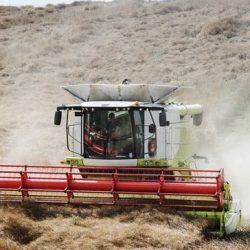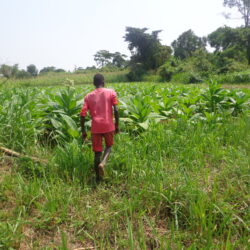YOKOHAMA, JAPAN – In a move set to position Ghana as a continental leader in agricultural technology, the nation has clinched a landmark $100 million investment to build Africa’s first AI-powered farming hub. The four-year commitment from Degas Limited, a global agri-tech company, was a highlight of the Ghana Presidential Investment Forum, held on the sidelines of the Tokyo International Conference on African Development (TICAD 9).
The deal, forged after a high-level meeting between Ghanaian President John Dramani Mahama and Degas CEO Doga Makiura, signals a significant shift in how African farming is perceived and funded. It places Ghana squarely on the map for Japanese investors, with over 100 Japanese companies expressing interest in new ventures at the conference.
At the heart of the initiative is a simple yet powerful premise: leveraging artificial intelligence to empower the smallholder farmer. Degas plans to scale its AI-driven platform, which uses real-time satellite imagery and predictive analytics to provide farmers with actionable insights. This technological toolkit will help them optimise planting schedules, manage irrigation, control pests, and time their harvests for maximum yield.
“Ghana has shown that when technology meets a clear national vision, smallholder farmers can thrive,” said Makiura. “This investment will help us boost yields, reduce risk, and expand affordable financing.”
The company’s track record is compelling. Degas has already financed 86,000 farmers across 122,000 acres, reporting a doubling of incomes and an impressive 95% loan repayment rate. The new capital infusion will extend this success story, providing access to AI-supported financing, satellite-enabled crop monitoring, and precision agronomy services.
The stakes could not be higher. Africa faces a looming food security crisis, with climate change, soil degradation, and pest outbreaks threatening to destabilise entire regions. The UN projects that by 2030, a staggering 118 million Africans could be at risk from the effects of droughts and floods. AI-powered tools, which can improve weed detection and climate adaptation strategies, offer a vital lifeline.
Beyond the fields, the partnership is expected to create thousands of jobs, particularly for the youth, aligning with President Mahama’s ambitious “Big Push” infrastructure plan and the “24-Hour Economy” initiative. The economic ripple effect is set to be substantial, with new opportunities in logistics, data services, and value chain processing.
This development is part of a broader continental trend, with agri-tech investments across Africa soaring from less than $10 million in 2014 to $600 million in 2022. It also aligns with the African Union’s recommendations to integrate AI and data science into the agricultural sector.
President Mahama hailed the project as “a strong vote of confidence in Ghana’s vision for integrated, technology-enabled agriculture,” positioning AI adoption as a cornerstone of the nation’s food security and job creation strategy. For Ghana, the future of farming is not just about seeds and soil but about data and smart technology.




